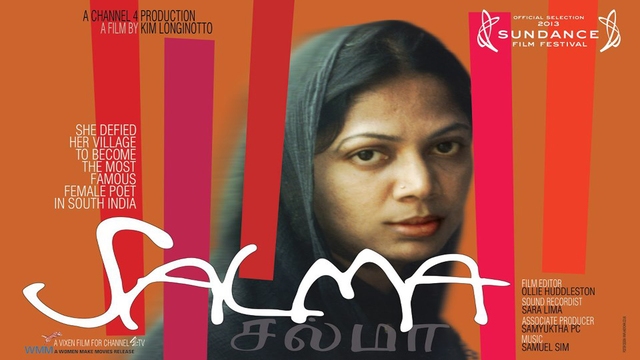Salma
The Indian woman who after being locked away for 25 years by her conservative village broke free and found freedom
 When Salma, a Muslim girl living in rural India, reached puberty, her parents locked her away. Forced into marriage and forbidden from studying, for 25 years she fought to find expression for her plight in poems composed on discarded scraps of paper. Finding their way into the hands of a publisher, these fragments ultimately bought her freedom. But while Salma may have found an unlikely way out, her experience is remarkable precisely because it is so common.
When Salma, a Muslim girl living in rural India, reached puberty, her parents locked her away. Forced into marriage and forbidden from studying, for 25 years she fought to find expression for her plight in poems composed on discarded scraps of paper. Finding their way into the hands of a publisher, these fragments ultimately bought her freedom. But while Salma may have found an unlikely way out, her experience is remarkable precisely because it is so common.



"Most girls start periods at 13. That's when the world outside becomes strictly forbidden", Salma explains. "One by one, my school friends got locked up. I was overwhelmed with dread, thinking 'I'm next.'" Before she had finished primary education, Salma's parents had chosen her a husband - her life carved out with terrifying certainty. "I had no dreams any more. No desires. My life had been decided for me." Imprisoned in her home and consigned to a servile existence, she was, in the words of one of her poems, 'living through the years but saying goodbye to life'. "She's a good girl", her father concedes, "but she's too clever. She gets angry all the time." But in her village's suffocating climate of cultural repression, anger was the only thing that thrived. "I could feel it boiling inside me", she recalls. "That's when I started writing poetry." In the clammy confines of a communal toilet, Salma poured out her soul. Deep-seated grievances and impotent desires were given shape in lines that caused a sensation, provoking outrage in her community and propelling her to fame. "When I first got to know her, everything was so new and difficult", reflects her publisher. "Crossing the road, having a meal out - it was so new to her." As she emerged from obscurity, Salma became a voice for all women living in captivity, daring to claim a right to sexuality and exposing the trauma of the marriage bed. But even as she hopes for a different fate for the next generation of girls, she finds that tradition runs deep, and change happens slowly. "All my sadness and anger when you look at women's lives - you can see their pain, they just don't seem aware of it." LEARN MORE.
WATCH MORE.
JOIN THE DISCUSSION.
 Official Selection - World Cinema Documentary Competition, Sundance Film Festival 2013
Official Selection - World Cinema Documentary Competition, Sundance Film Festival 2013
 Official Selection, Internationale Flimfestspiele Berlin, 2013
Official Selection, Internationale Flimfestspiele Berlin, 2013
 Official Selection, Sheffield Doc/Fest 2013
Official Selection, Sheffield Doc/Fest 2013
 Winner, Documentary Edge Festival 2013
Winner, Documentary Edge Festival 2013





